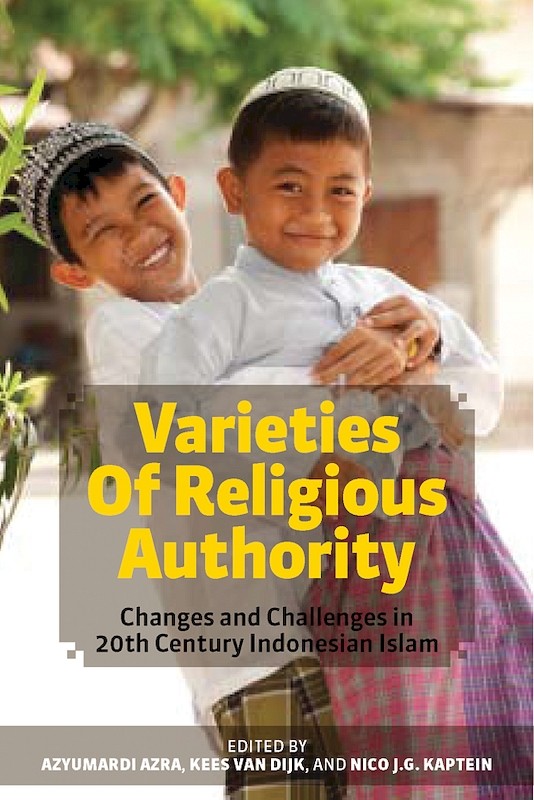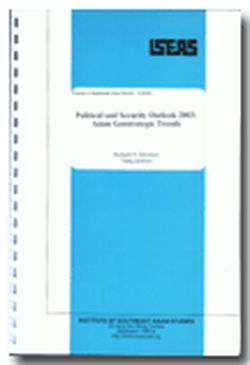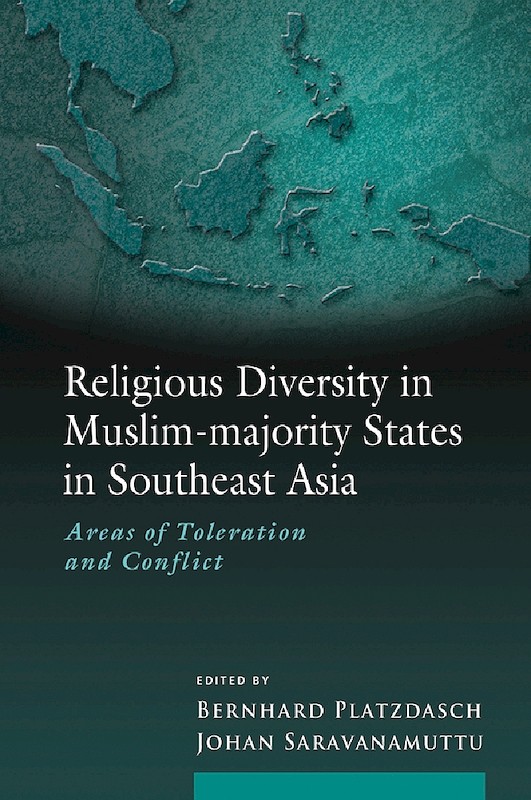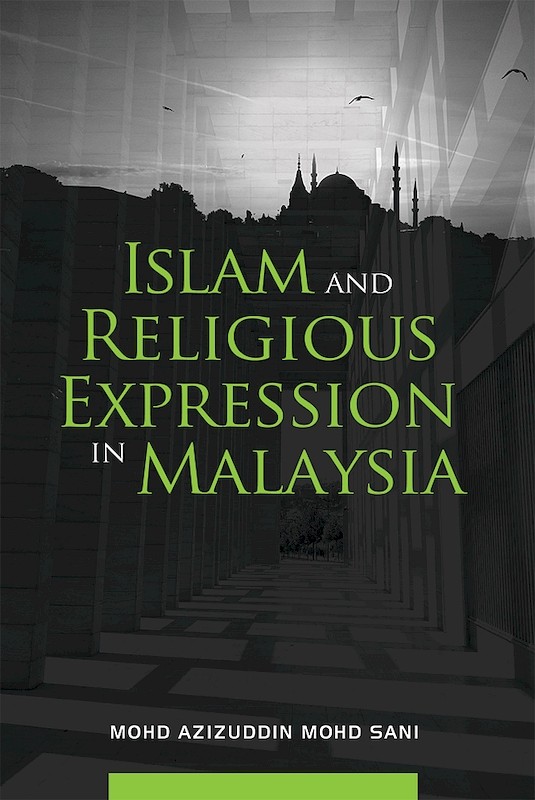The New Santri: Challenges to Traditional Religious Authority in Indonesia
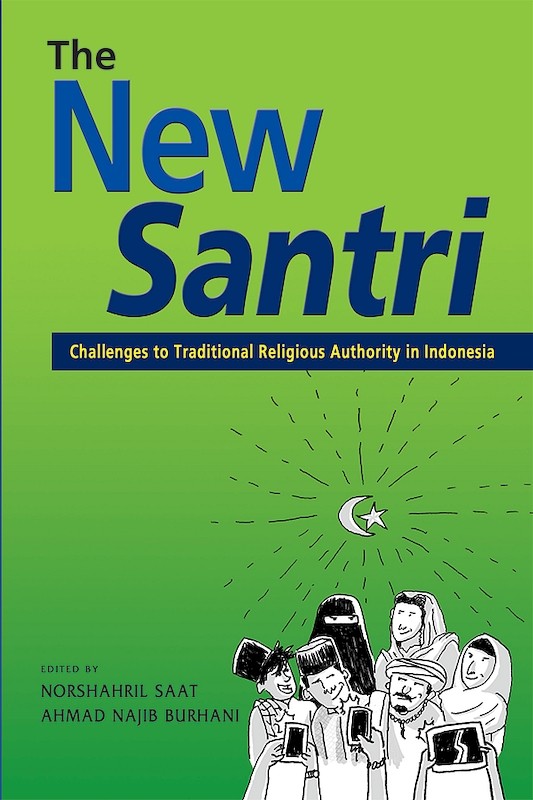
Date of publication:
2020
Publisher:
ISEAS – Yusof Ishak Institute
Number of pages:
369
Code:
PIC278
Soft Cover
ISBN: 9789814881470
Reviews
Anggi Afriansyah, Studia Islamika (Indonesian Journal for Islamic Studies), Vol. 28: 1, 2021.
About the publication
"Just like the Gutenberg revolution in the fifteenth century, which led to the emergence of non-conventional religious authority in the Christian world, the current information technology revolution, particularly through mediums such as Facebook, Instagram, YouTube, and Twitter, has triggered the re-construction and decentralization of religious authority in Islam. New santri (pious individuals) and preachers emerged from the non-conventional religious educational system. They not only challenged the traditional authorities, but also redefine and re-conceptualize old religious terminologies, such as hijra and wasatiyya. This book explores the dynamics of religious authority in Indonesia with special attention to the challenges from the “new santri”. It is a rich and important book on religion. I recommend students of religion in Indonesia and other countries to read it."
Ahmad Syafi’i Maarif, Professor Emeritus of History at Yogyakarta State University
"An important and timely volume that addresses the changing nature of Islamic leadership in the world’s most popular Muslim country. This book debunks many (mis)perceptions that Indonesia Islam is monolithic. It also redefines dominant characterization of Islam by Orientalist scholars, such as santri and abangan Muslims."
Haedar Nashir, Chairman of Muhammadiyah
"This edited volume evaluates the new development of Islamic scholarship and authority in Indonesia. Things have changed significantly in recent times that make many observers and researchers wondering: has Indonesia moved from traditional authorities, mainstream Islamic organizations, and the established scholarship to the new actors, movements and platforms? Has the change occurs owing to the democratization and political reforms that took place in the last twenty years or are there other factors we need to take into account? The contributors in this book provide possible answers from many different areas and perspectives. It’s a must-read!"
Nadirsyah Hosen, Monash University, Australia
Contents
-
The New Santri: Challenges to Traditional Religious Authority in Indonesia
[Whole Publication, ISBN: 9789814881487], by Norshahril Saat, Ahmad Najib Burhani, editors -
Preliminary pages
-
1. Introduction, by Norshahril Saat, Ahmad Najib Burhani, authors
- PART I: CHALLENGING TRADITIONAL AUTHORITY
-
2. Religious Authority in Indonesian Islam: Mainstream Organizations under Threat?, by M Amin Abdullah, author
-
3. “Being Authoritative But No Authority?” Muslim Religious Intellectuals in Shaping Indonesian Islam Discourse, by Azhar Ibrahim, author
-
4. New Contestation in Interpreting Religious Texts: Fatwa, Tafsir, and Shariah, by Syafiq Hasyim, author
-
5. Aceh’s Shariah Office: Bureaucratic Religious Authority and Social Development in Aceh, by Arskal Salim, Marzi Afriko, authors
-
6. Muslim Female Authorities in Indonesia: Conservatism and Legal Notion of Women Preachers on Familial Issues , by Euis Nurlaelawati, author
-
7. Mobilizing on Morality: Conservative Islamic Movements and Policy Impact in Contemporary Indonesia, by Eunsook Jung, author
- PART II: TRANSNATIONAL TRANSMISSION OF ISLAMIC KNOWLEDGE
-
8. Salafism, Knowledge Production, and Religious Education in Indonesia, by Noorhaidi Hasan, author
-
9. Opposing Wahhabism: The Emergence of Ultra-Traditionalism in Contemporary Indonesia, by Syamsul Rijal, author
-
10. Nurturing Religious Authority among Tablighi Jamaat in Indonesia: Going Out for Khuruj and Becoming Preacher, by Muhammad Adlin Sila, author
-
11. Religious Education, Sufi Brotherhood, and Religious Authority: A Case Study of the Sulaimaniyah, by Firdaus Wajdi, author
- PART III: THE NEW <i>SANTRI</i>
-
12. Pop and “True” Islam in Urban Pengajian: The Making of Religious Authority, by Yanwar Pribadi, author
-
13. The Rise of Cool Ustadz: Preaching, Subcultures, and the Pemuda Hijrah Movement, by Wahyudi Akmaliah, author
-
14. New Religious Preacher in the Changing Religious Authority: The Offline and Online Preacher of Ustadz Abdul Somad, by Hamdani, author
-
15. Santri, Cinema and the Exploratory Form of Authority in Traditionalist Muslim Indonesia, by Ahmad Nuril Huda, author
-
16. The Politics of Religious and Cultural Authority: Contestation and Co-existence of Sultanate and Islamic Movements in the Post-Suharto Yogyakarta and Ternate, by Muhammad Najib Azca, Moh Zaki Arrobi, authors
-
17. Jihad Against the Ghazwul Fikri: Actors and Mobilization Strategies of the Islamic Underground Movement, by Hikmawan Saefullah, author
-
Index


